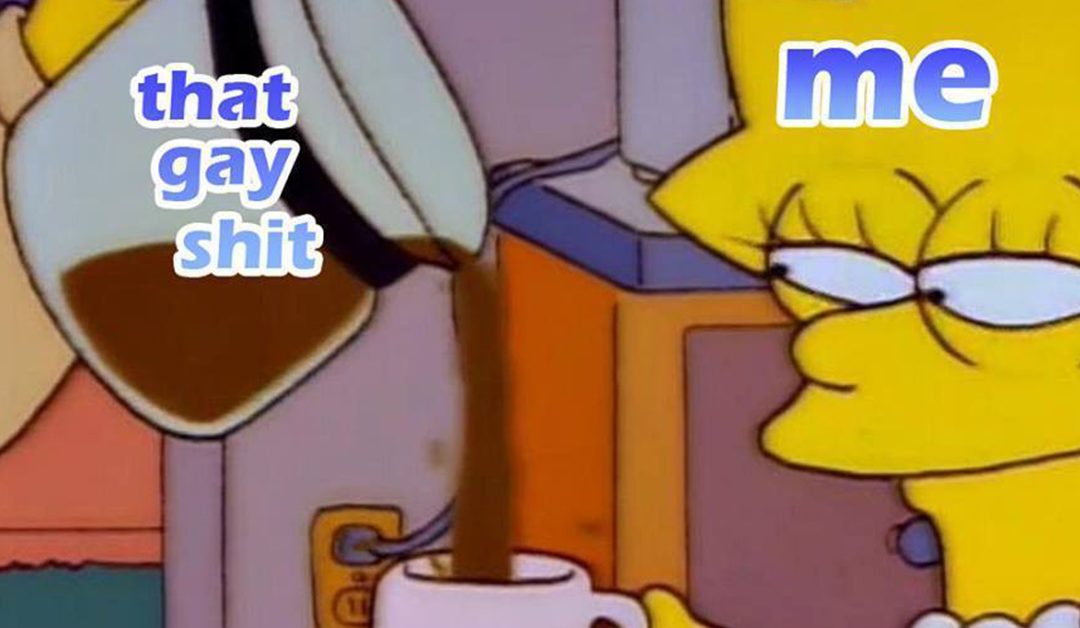Queer poetics: autobiography as self-(de)construction | a conversation/no-workshop with Gina Dau | 4 June, 6 pm | Kaunas Artists’ House
“To quote one person I dearly love, “Hi, I hope you’re into oversharing”, because there’s going to be a lot of that.
Most queer people probably know the “coming out” genre very well. It’s a story we have told many times to our therapists, relatives, friends, partners, colleagues, or at least ourselves. And it is a genre with clear tropes. After all, coming out as a type of autobiography starts with describing one’s early childhood and the “first symptoms”, encompasses various traumatic experiences of living in denial or in secret and finally reaches its climax with the acknowledgement of one’s “own truth” and naming one’s identity. It constructs conventional oppositions between living a lie in the past and the present authenticity, it even employs the same conventional metaphor of the closet. Furthermore, in the mainstream LGBT+ activist discourse coming out becomes a necessary rite of passage, a kind of baptising, without which one seems to be not quite welcome in the community. But can all queer experiences be reduced to these conventional structures and must all these experiences be legitimized by the act of coming out?
Such is the topic of this informal meeting, which I would call a no-workshop. I’m not particularly fond of the word “workshop” since it implies that the sole purpose is to create some artistic or intellectual product, to learn something, and so on. But queerness, according to Jack Judith Halberstam, is a failure (in the most positive sense of that word): a failure to conform to gender norms, a failure to live up to the expectations of neoliberal capitalism. No, if this meeting has any purpose at all, it’s to deconstruct, to question. But most importantly it’s to spend time together in the community, because after all, it’s pride week. So, on that occasion I invite you to meet up and together share our stories of queerness, the painful and/or beautiful moments, rethink them, construct and deconstruct our biographies and ourselves. Fuck a lecture or a well organised discussion, let this be an intimate conversation through which instead of finding ourselves, we’ll hopefully at least for a brief moment get lost.”
Gina Dau is a doctoral student at the University of Helsinki, researching the interconnections between language and ideology. They would prefer not to talk about their dissertation, thank you for asking. “Queer poetics” is a series of texts (ok, only one text has been published so far, but let’s play along) where the author blends poststructuralist philosophy, self-deprecatory stories from personal life, pop culture and memes and analyses failure as the most beautiful and powerful feature of being queer. This conversation/no-workshop is inspired by the sketch of the authors latest (although not done yet) text.
Gina is also a part-time witch, who is unsuccessfully trying to quit smoking and is struggling with executive dysfunction. Honestly, they are surprised they’ve managed to even finish this abstract for the event.
The KAH residency programme was launched in 2018 with the aim to present the most relevant contemporary artists, curators and cultural researchers working in Lithuania and abroad to the residents and guests of Kaunas city. The residency programme aims to foster intercultural, cross-institutional and cross-sectoral cooperation, to provide artists and cultural producers with the opportunity to become acquainted with the historical and cultural context of the city during their residency, to facilitate their cooperation with other artists or cultural producers and local communities.
June is well known as Pride month. Aiming to express their solidarity with LGBTQ+ communities Kaunas Artists’ House is hosting a series of events during June, dedicated to the history of LGBTQ+ activism and experiences. Beside the aforementioned Gina Dau’s no-workshop, KAH will screen “The Death and Life of Marsha P. Johnson” in collaboration with “Kitas kinas” and Vilnius queer festival “Kreivės” on the 19th of June. More information on this event will be announced soon.
If necessary, the event can be held in English.

